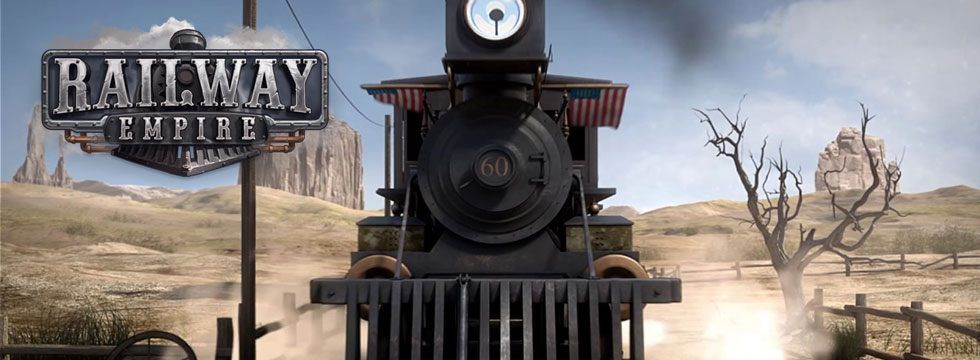Railway Empire Game Guide
Chu! Chu!. This game guide for Railway Empire is a complete set of tips that will teach you everything about railway management. The walkthrough for Railway Empire also includes information on how to build tracks and run your industry.
Last update:

Railway Empire Game Guide
This guide to Railway Empire contains a number of hints and descriptions that will help you manage the railway monster in a professional way. Here, you will learn many basics, including how to lay down tracks and establish new connections. You will learn how to use railway signs, as well as the more advanced methods of building railway lines. This guide also provides information on other aspects of the game, such as research, personnel management, and financial management.
- How do I start?
- Laying down tracks and establishing lines
- Signaling equipment and storage - the advanced art of track laying
- How to earn money?
- Railway Empire: Campaign walkthrough
How do I start?
The game guide provides a handful of hints that will prove useful at the beginning of the game and later on. You will learn how to best invest research points, how to use your personnel and what to pay attention to.
- Useful hints & guides for a good start
- How to develop cities and factories?
- Express and Cargo Trains - which trains are more profitable, express or cargo trains?
Laying down tracks and establishing lines
This is bread and butter in Railway Empire. It's worthwhile to learn useful information on how to build and design railway lines. In itself, establishing of lines is not difficult, but this will change as you own more and more trains. This is why, the skill to plan and establish new lines is indispensable and it helps you handle your network of connections effectively.
Signaling equipment and storage - the advanced art of track laying
As soon as you have mastered the basics of establishing simple connections, you will find yourself in need of more advanced ones. Signaling equipment makes railway transport easier. This way, more trains will be able to operate in smaller areas. Storages will make it easier for you to transport materials to cities - they are intermediary stops. They will come in handy while supplying many factories, towns and cities.
- Railway Signalling and Signals
- How to use Warehouses? - transport your materials.
How to earn money?
Money is the key to success here and you will earn it predominantly from trains. Some of your profit will originate from other sources, but this is only a small percentage of what you will earn from railway transport. In the following chapters, you will learn about the best ways to earn money and the best practices you can employ for that purpose. Just as important is the development of cities and factories, thanks to which your profit will rise.
Personnel, special rail cars, research and finances...
...as well as all the minor issues that will prove useful during the game. Personnel mainly affects specific trains and your company. Special rail cars are unique elements of your trains that provide you with specific bonuses. Thanks to research, you will be able to upgrade your trains and unlock railway engines. You will learn how to buy out your competitors, as well as how shares and bonds work.
Railway Empire: Campaign walkthrough
In this part of the guide, you will find walkthrough and hints that will make it easier to complete all five chapters!
- Chapter 1 - Great Plains
- Chapter 2 - The early days
- Chapter 3 - Over the Mississippi
- Chapter 4 - Civil War
- Chapter 5 - Sierra Nevada
- Railway Empire: Chapter 2 - The early days
- Railway Empire: Chapter 1 - Great Plains
- Railway Empire: Campaign
- Railway Empire: Research, bonds and acquiring competitors
- Railway Empire: Personnel and special railcars in Railway Empire
- Railway Empire: Advanced
- Railway Empire: Railway Signalling and Signals
- Railway Empire: Building tracks and creating lines
- Railway Empire: Building tracks
- Railway Empire: How to develop cities and factories?
- Railway Empire: How to use Warehouses?
- Railway Empire: Express and Cargo Trains
- Railway Empire: How to make money?
- Railway Empire: Useful hints to make a good start
- Railway Empire: Beginners Game Guide
You are not permitted to copy any image, text or info from this page. This site is not associated with and/or endorsed by the developers and the publishers. All logos and images are copyrighted by their respective owners.
Copyright © 2000 - 2026 Webedia Polska SA for gamepressure.com, unofficial game guides, walkthroughs, secrets, game tips, maps & strategies for top games.
